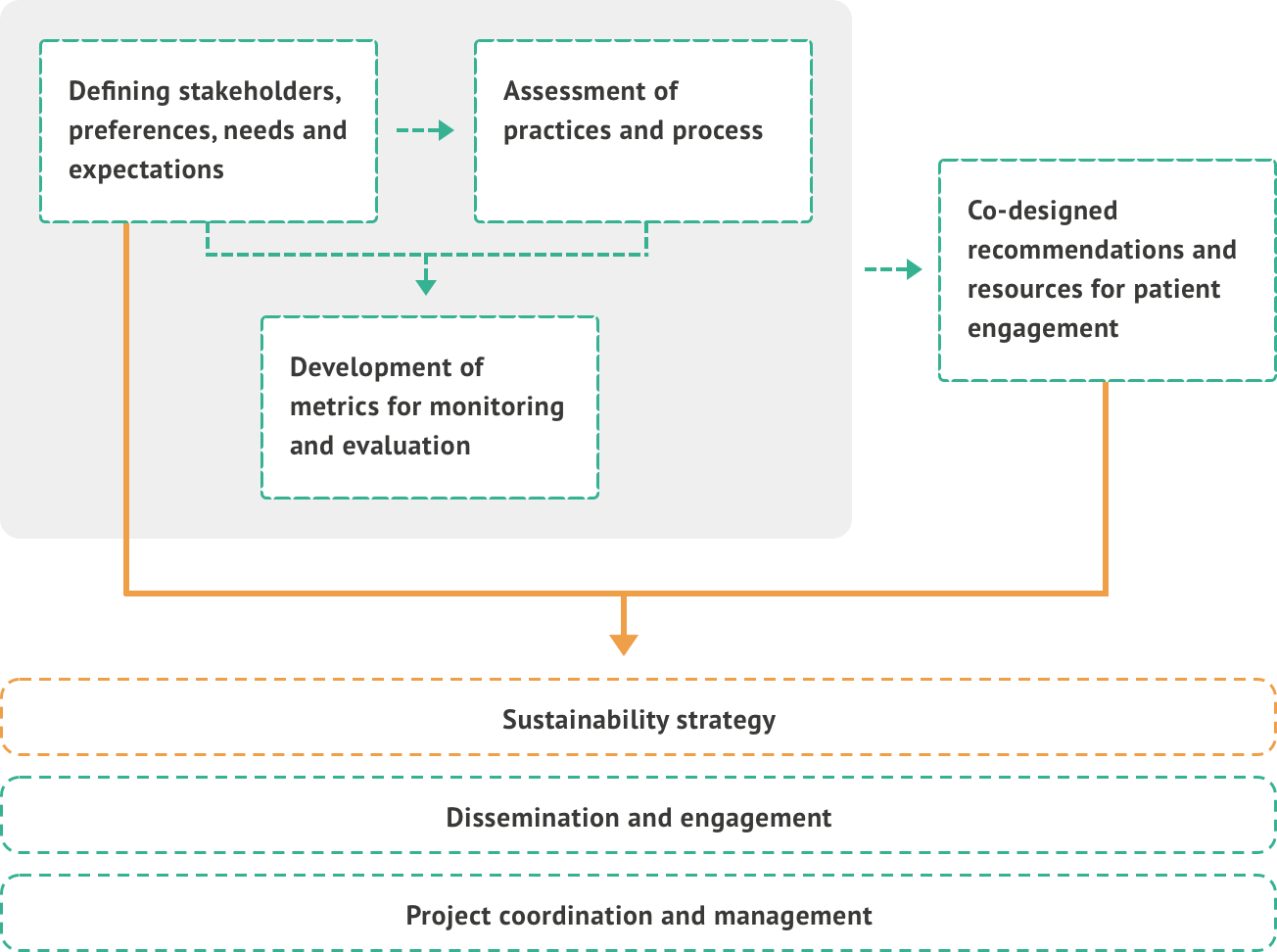You can discover below the main work streams in PARADIGM with their specific objectives. The figure on the right clearly describes PARADIGM’s methodology.
PARADIGM is receiving funding from the Innovative Medicines Initiative Joint Undertaking 2. This Joint Undertaking receives support from the European Union’s Horizon 2020 research and innovation programme and EFPIA.

Defining stakeholders’ preferences, needs and expectations.
Objectives:
Understand patient engagement expectations from key players in each stakeholder group at the international, European and local levels;
Identify and prioritise patient engagement expected success factors and existing gaps (who, when, what and how to engage);
Define a set of criteria to categorise and prioritize expected patient engagement practices and frameworks;
Bring the co-creation and collaborative approach to life from the start and to be deployed across all PARADIGM work packages.
Assessment of practices and processes.
Objectives:
Identify and collate existing practices and processes (patient driven and non-patient driven) relevant to patient engagement initiatives;
Perform a gap analysis of existing practices and processes against criteria established in the first work package.
Development of metrics for monitoring and evaluation.
Objectives:
Develop means of determining the return on engagement;
Identify existing methods for, and experiences with, monitoring and evaluation (M&E) of outcomes and impact of patient engagement across the medicines-development lifecycle;
Develop, test, assess and refine monitoring and evaluation (M&E) frameworks for assessing the outcomes and impact of patient engagement that can be applied at different decision-making points in the medicines-development lifecycle.
Co-designed recommendations and resources for patient engagement.
Objectives:
Increase stakeholders’ preparedness for patient engagement in the priority areas in the medicines lifecycle addressed by PARADIGM by developing recommendations on the required capabilities for each stakeholder;
Develop a set of tools on patient engagement addressing each key stakeholder groups requirement;
Enhance stakeholders’ capacity to implement concretely efficient patient engagement policies through the development of a capacity-building toolbox targeting all stakeholders;
Support the uptake and dissemination of the project’s outputs to promote their adoption by all stakeholders.
Dissemination and engagement.
Objectives:
Promote acceptance and buy-in of the project outcomes by all relevant stakeholders through building a co-creation model centrally, to be utilised across all work packages;
Ensure strategic and extensive outreach to a broader set of stakeholders within the medicine development community at large and engage with relevant initiatives and projects to ensure optimal synergies and cross-fertilisation, and to avoid duplication of efforts;
Identify opportunities to collaborate in developing a cohesive and coherent ecosystem to support the overall project, foster adoption of its work products and enhance sustainability.
Sustainability strategy.
Objectives:
Build up a structured dialogue with the key stakeholders to assess their needs and expectations towards a sustainability framework;
Identify, benchmark and assess relevant sustainability models;
Identify the most appropriate structure(s) / organisations / partnership models for ensuring sustainability of the patient engagement strategy developed for all stakeholders;
Develop a comprehensive business plan and the associated roadmap to sustain patient engagement including new services and activities.


